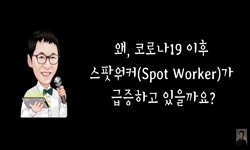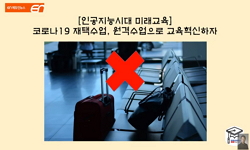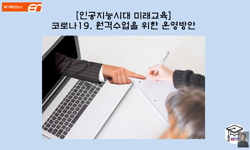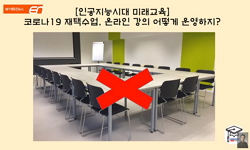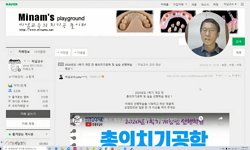COVID-19의 국제적 전파로 인한 환자와 사망자의 급증으로 국내 및 국제사회는 큰 혼란에 빠졌고 WHO에 대한 불신도 증폭되었다. 조속한 백신 개발 및 접종에 대한 기대 외에 별 대책 없이 세계...
http://chineseinput.net/에서 pinyin(병음)방식으로 중국어를 변환할 수 있습니다.
변환된 중국어를 복사하여 사용하시면 됩니다.
- 中文 을 입력하시려면 zhongwen을 입력하시고 space를누르시면됩니다.
- 北京 을 입력하시려면 beijing을 입력하시고 space를 누르시면 됩니다.

세계보건기구(WHO)의 역할과 한계: 코로나19 창궐 상황을 중심으로 = The Role and Limitations of the World Health Organization (WHO): focusing on COVID-19 Outbreak
한글로보기https://www.riss.kr/link?id=A107184697
- 저자
- 발행기관
- 학술지명
- 권호사항
-
발행연도
2020
-
작성언어
-
-
주제어
세계보건기구 ; 코로나 19 ; 국제보건규칙 ; 감염병 ; 국제법 ; WHO ; COVID-19 ; IHR ; Infectious Diseases ; Public Health ; International Law
-
등재정보
KCI등재
-
자료형태
학술저널
-
수록면
91-120(30쪽)
-
KCI 피인용횟수
0
- 제공처
- 소장기관
-
0
상세조회 -
0
다운로드
부가정보
국문 초록 (Abstract)
COVID-19의 국제적 전파로 인한 환자와 사망자의 급증으로 국내 및 국제사회는 큰 혼란에 빠졌고 WHO에 대한 불신도 증폭되었다. 조속한 백신 개발 및 접종에 대한 기대 외에 별 대책 없이 세계적 전파의 고통을 겪고 있는 국제사회는 미래 감염병의 위험에 효율적이고 능동적으로 대응하기 위한 개혁과 세계보건법의 재구성 필요성을 절감하고 있다.
WHO 규범의 실효성 강화와 이행 수단의 확보를 위하여 PHEIC 상황에서 발급되었던 권고들 중 공통적 내용과 주요 국제관행을 (의무적) 규칙 조항에 포함하고 보건 위협에 따른 국제여행과 무역의 제한에 대한 표준 및 집행 가이드라인을 마련하며 현재의 유명무실한 제도를 개혁하여야 한다.
어느 당사국의 의무 위반으로 손해를 입은 당사국을 실질적으로 구제할 수 있도록 분쟁해결 제도를 개혁해야 한다. 피해 당사국의 제소권을 인정하고 강제관할권을 갖는 특별법정의 설치가 필요하다.
사무총장에게 집중된 권한과 정치 편향성의 문제를 시정하기 위하여 비상위원회의 사무총장이나 특정 당사국으로부터의 독립성과 권한은 강화되어야 하고 그 의사결정 방법도 구체화하여야 한다.
WHO의 정보 수집 권한과 능력을 보완하기 위하여 ① WHO에 사실조사 권한의 부여 ② PHEIC이 결정된 경우 당사국이 제공해야 할 정보에 병원체 생물학적 표본과 GSD 포함, ③ 비당사국 정보 통로를 확대하여야 한다.
WHO는 강대국의 영향력으로부터 독립적으로, 과학적 근거와 평가에만 근거하여, 운영되어야 한다. 한편, 당사국들은 WHO 대응 및 관리 체제에 적극적으로 협력해야 한다. 이러한 WHO 개혁은 당사국의 주권과 영토관할권에 대한 제한이 수반된다는 점에서 국제사회의 보다 적극적 협력과 정치적 결단이 필요하다. 또한, WHO의 역할과 기능 강화는 충분한 예산 확보, 특히 당사국들의 더욱 많은 기여에 달려있다. 개혁을 통한 WHO에 대한 신뢰의 강화는 예산 확충의 방안이기도 하다.
다국어 초록 (Multilingual Abstract)
The rapid increase in the number of patients and deaths caused by the international spread of COVID-19 has caused great confusion in the domestic and international community and increased distrust in the WHO. The international community, which is expe...
The rapid increase in the number of patients and deaths caused by the international spread of COVID-19 has caused great confusion in the domestic and international community and increased distrust in the WHO. The international community, which is experiencing without any good countermeasures other than the expectation of rapid vaccine development, recognizes the need for reform and reorganization of world health law to effectively and actively respond to the risk of future infectious diseases.
In order to strengthen the effectiveness of the WHO rules and regulations and secure the means of implementation, the common contents of the recommendations issued in the PHEIC situations and the main international practices are included in the provisions of regulations. Also, we should set standards and enforcement guidelines for the restriction of international travel and trade in the PHEIC situations.
The dispute settlement system should be reformed so as to provide substantial relief for any State Party that has been affected by the the other Party’s breach of its obligations. It is necessary to establish a special tribunal, which has compulsory jurisdiction, and to recognizes the right to sue of the affected Party.
In order to correct the problem of political bias and the power concentrated on the WHO Director-General, the independence and powers of the Emergency Committee from the Director-Genera or specific States Parties should be strengthened and the method of decision-making should be specified.
In order to supplement the WHO information collection authority and capacity, ① granting the authority to investigate facts to the WHO. ② In case PHEIC is determined, the information to be provided by the Party includes pathogen biological specimens and GSD, and ③ The information channels of non-State Party should be expanded.
WHO should operate solely on scientific basis and evaluation, independent of strong national influence. States Parties should actively cooperate in the WHO response and management system.
The international community's political determination is necessary in that this WHO reform entails restrictions on the sovereignty and territorial jurisdiction of the State party.
In addition, the strengthening of the role and function of WHO depends on securing a sufficient budget, in particular the greater contribution of the Parties. Reinforcement of trust in WHO through reform is also a way to expand the budget.
참고문헌 (Reference)
1 박진아, "코로나19와 국제보건규칙의 대응: 그 한계와 문제점을 중심으로" 서울국제법연구원 27 (27): 1-28, 2020
2 장신, "신 국제보건규칙(IHR 2005)제정에 따른 국제보건법의 발전 - 적용범위 확대를 중심으로 -" 대한국제법학회 52 (52): 399-426, 2007
3 류병운, "생물유전자원에 대한 접근 및 이익의 공유" 법학연구소 18 (18): 59-88, 2017
4 박진아, "국제법을 통한 감염병 통제 - 국제보건규칙의 이행과 준수를 중심으로 -" 법학연구소 23 (23): 59-83, 2019
5 Tiaji Salaam-Blyther, "U.S. Withdrawal from the World Health Organization: Process and Implications" 2020
6 Mark Eccleston-Turner, "Transparency in IHR emergency committee decision making: the case for reform" 4 (4): 1-, 2019
7 Michael A. Peters, "The WHO, the Global Governance of Health and Pandemic Politics" 2020
8 David P. Fidler, "The WHO Pandemic Influenza Preparedness Framework: A Milestone in Global Governance for Health" 306 (306): 200-, 2011
9 David P. Fidler, "The New International Health Regulations: An Historic Development for International Law and Public Health" 34 : 85-, 2006
10 Lawrence O. Gostin, "The International Health Regulations: The Governing Framework for Global Health Security" 94 (94): 264-, 2016
1 박진아, "코로나19와 국제보건규칙의 대응: 그 한계와 문제점을 중심으로" 서울국제법연구원 27 (27): 1-28, 2020
2 장신, "신 국제보건규칙(IHR 2005)제정에 따른 국제보건법의 발전 - 적용범위 확대를 중심으로 -" 대한국제법학회 52 (52): 399-426, 2007
3 류병운, "생물유전자원에 대한 접근 및 이익의 공유" 법학연구소 18 (18): 59-88, 2017
4 박진아, "국제법을 통한 감염병 통제 - 국제보건규칙의 이행과 준수를 중심으로 -" 법학연구소 23 (23): 59-83, 2019
5 Tiaji Salaam-Blyther, "U.S. Withdrawal from the World Health Organization: Process and Implications" 2020
6 Mark Eccleston-Turner, "Transparency in IHR emergency committee decision making: the case for reform" 4 (4): 1-, 2019
7 Michael A. Peters, "The WHO, the Global Governance of Health and Pandemic Politics" 2020
8 David P. Fidler, "The WHO Pandemic Influenza Preparedness Framework: A Milestone in Global Governance for Health" 306 (306): 200-, 2011
9 David P. Fidler, "The New International Health Regulations: An Historic Development for International Law and Public Health" 34 : 85-, 2006
10 Lawrence O. Gostin, "The International Health Regulations: The Governing Framework for Global Health Security" 94 (94): 264-, 2016
11 Marc DuBois, "The Ebola response in West Africa: Exposing the politics and culture of international aid" HPG 2015
12 N. Wang, "Serological evidence of bat SARS-related coronavirus infection in humans, China" 33 (33): 104-, 2018
13 Stefania Negri, "Research Handbook on Global Health Law" 2018
14 WHO, "Report of the WHO-China Joint Mission on Coronavirus Disease 2019 (COVID-19)" 14-18, 2020
15 Gian Luca Burci, "Preparing for the next pandemic: The International Health Regulations and World Health Organization during COVID-19" 2 (2): 2020
16 Suerie Moon, "Post-Ebola reforms: ample analysis, inadequate action"
17 Michelle Rourke, "Policy opportunities to enhance sharing for pandemic research" 368 (368): 716-, 2020
18 Steinar Andresen, "Leadership Change in the World Health Organization: Potential for Increased Effectiveness?" FNI 2002
19 Lawrence O. Gostin, "Has Global Health Law Risen to Meet the COVID-19 Challenge? Revisiting the International Health Regulations to Prepare for Future Threats" 48 : 376-, 2020
20 Lone Simonsen, "Global Mortality Estimates for the 2009 Influenza Pandemic from the GLaMOR Project: A Modeling Study" 10 (10): 1-, 2013
21 Lawrence O. Gostin, "Global Health Law: A Definition and Grand Challenges" 1 : 53-, 2008
22 Lawrence O. Gostin, "Global Health Law" 2014
23 David P. Fidler, "Germs, Governance, and Global Public Health in the Wake of SARS" 113 : 799-, 2004
24 David P. Fidler, "From International Sanitary Conventions to Global Health Security: The New International Health Regulations" 4 (4): 325-, 2005
25 Roojin Habibi, "Do Not Violate the International Health Regulations During the COVID- 19 Outbreak" 395 : 664-, 2020
26 Manfred S. Green, "Did the hesitancy in declaring COVID-19 a pandemic reflect a need to redefine the term?" 395 : 1034-, 2020
27 Steven J. Hoffman, "Delays in Global Disease Outbreak Responses: Lessons from H1N1, Ebola, and Zika" 108 (108): 329-, 2018
28 Ching-Fu Lin, "COVID-19 and the Institutional Resilience of the IHR (2005): Time for a Dispute Settlement Redesign?" 13 : 269-, 2020
29 T. M. Wassenaar, "2019_nCoV/SARS‐CoV‐2: rapid classification of betacoronaviruses and identifiation of Traditional Chinese Medicine as potential origin of zoonotic coronaviruses" 70 (70): 342-, 2020
동일학술지(권/호) 다른 논문
-
- 홍익대학교 법학연구소
- 이재목 ( Lee Jae Mok )
- 2020
- KCI등재
-
- 홍익대학교 법학연구소
- 김진우 ( Kim Chin-woo )
- 2020
- KCI등재
-
의료기관의 민사책임에 관한 고찰 - 원격의료를 둘러싼 미국의 사용자책임과 직접책임을 근거로 삼아 -
- 홍익대학교 법학연구소
- 김항중 ( Kim Hang Jung )
- 2020
- KCI등재
-
중국 전자인증기구의 인증책임에 대한 사법적(私法的) 검토
- 홍익대학교 법학연구소
- 이정표 ( Lee Jeong-pyo )
- 2020
- KCI등재
분석정보
인용정보 인용지수 설명보기
학술지 이력
| 연월일 | 이력구분 | 이력상세 | 등재구분 |
|---|---|---|---|
| 2027 | 평가예정 | 재인증평가 신청대상 (재인증) | |
| 2021-01-01 | 평가 | 등재학술지 유지 (재인증) |  |
| 2018-01-01 | 평가 | 등재학술지 유지 (등재유지) |  |
| 2015-01-01 | 평가 | 등재학술지 유지 (등재유지) |  |
| 2014-10-27 | 학술지명변경 | 외국어명 : 미등록 -> Journal of hongik law review |  |
| 2011-01-01 | 평가 | 등재학술지 선정 (등재후보2차) |  |
| 2010-01-01 | 평가 | 등재후보 1차 PASS (등재후보1차) |  |
| 2008-01-01 | 평가 | 등재후보학술지 선정 (신규평가) |  |
학술지 인용정보
| 기준연도 | WOS-KCI 통합IF(2년) | KCIF(2년) | KCIF(3년) |
|---|---|---|---|
| 2016 | 0.59 | 0.59 | 0.61 |
| KCIF(4년) | KCIF(5년) | 중심성지수(3년) | 즉시성지수 |
| 0.6 | 0.59 | 0.693 | 0.42 |





 KCI
KCI KISS
KISS
